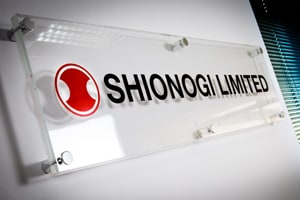
Japanese drugmaker Shionogi is making sure it is in pole position to acquire US biotech Tetra Therapeutics if its non-amyloid drug for Alzheimer’s disease works in a mid-stage trial.
The two companies have been collaborating since December 2018 on the development of BPN14770, a phosphodiesterase 4D inhibitor that is also in testing for other diseases linked to cognition and memory deficits, including Fragile X syndrome.
Fifteen months ago Shionogi signed a $160m deal with Tetra for regional rights to BNP14770 in Japan, Korea and Taiwan, with an upfront payment of $5m and a $35m equity investment.
Now, it has upped its equity stake in Tetra to 50%, with an option to buy the remaining equity if the phase 2 PICASSO AD trial in patients with early Alzheimer’s disease hits the mark later this month.
PDE 4 inhibitors are already used to treat inflammatory diseases in the lungs and skin, such as Amgen’s Otezla (apremilast) for psoriasis and Pfizer’s Eucrisa (crisaborole) for atopic dermatitis. The class has however been plagued by side effects including nausea, vomiting and other gastrointestinal effects.
Tetra and Shionogi say that by selecting targeting the PDE 4D subtype with an allosteric modulator – which binds to the enzyme but doesn’t completely block its activity – side effects like vomiting can be avoided.
The rationale behind the development of these drugs in Alzheimer’s is to dampen down inflammation in the central nervous system, and also that PDE seems to reduce brain levels of the secondary messenger cGMP, involved in the transduction of signals by neurotransmitters nitric oxide and glutamate in neurons.
So far however drug candidates working via the PDE system have disappointed in dementia trials. The first to start clinical development was Schering’s PDE4 inhibitor rolipram which started testing in the early 1990s but was abandoned because of toxicity issues.
Other PDE4 drugs that have fallen by the wayside include candidates from Roche/Memory Pharma (MEM 1414) and Merck & Co (MK-0952).
Boehringer Ingelheim took a different tack with its Alzheimer’s candidate BI 409306, which targeted PDE9, but that drug also failed mid-stage testing and was unable to show any improvement over placebo in slowing down the rate of cognitive decline.
Shionogi chief executive Isao Teshirogi commented: “With the ageing of our society, cognitive disorders are becoming a serious social issue. We believe BPN14770 has the potential to become an innovative new treatment to help solve this issue.”
“This new collaboration with Tetra reinforces our steadfast commitment to advancing cutting-edge science in central nervous system (CNS) disorders including Alzheimer’s disease,” he added.




